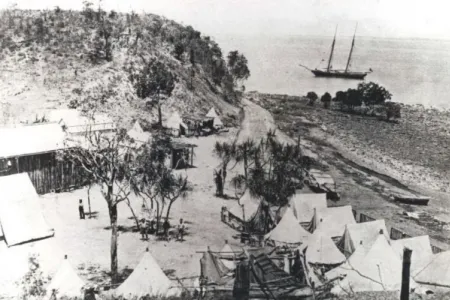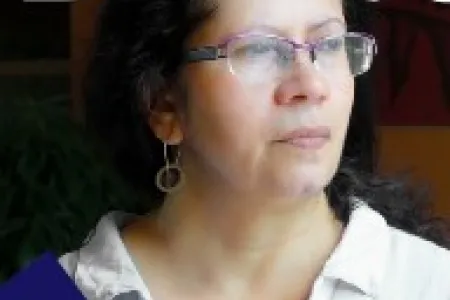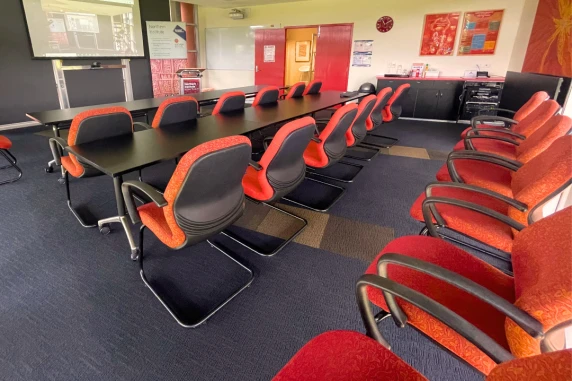Northern Institute
Archaeological and Aboriginal Responses to the European Invasion of the Darwin Region 1869–2018
| Presenter | Dr Kellie Pollard, Lecturer in Indigenous Futures, Northern Institute | |
|---|---|---|
| Date/Time |
to
|
|
| Contact person |
Northern Institute
|
|
| Location | Northern Institute, Savanna Room (Casuarina campus, Building Yellow 1, Level 2, Room 48) | |
| Open to | Public | |
People.Policy.Place Seminar Program 2024
About
In this seminar, I discuss the one-hundred-and-fifty-year history of continuous contact between Aboriginal and non-Indigenous people in the Darwin region of the Northern Territory of Australia after the European invasion in 1869 until 2018. This history is examined through three forms of evidence: archaeological, archive records, and ethnography of contemporary Aboriginal fringe camps in the ‘long grass’ of Darwin. Historically and in the present, where Aboriginal people made and still make camps is a place of interface between Aboriginal and non-Indigenous people. This interface represents an engagement of a particular dimension of continuous relationality towards each other conceptualised within the framework of colonialism as the Aboriginal behaviour of accommodation, survivance, and resistance/transgression by Aboriginal people then and now. For this reason, the archaeological, archive and ethnographic evidence of Aboriginal people in fringe camps provide critical potential for elucidating aspects of the historical process of land theft and dispossession as a response to the European invasion. In the contemporary context, Aboriginal fringe camps bear distinct evidence of a cultural nature that associates their origins, location, use, purpose, and functions predominantly with Aboriginal people. This seminar presents a different way to think about how Aboriginal people use fringe camps on Country in the past and the present in the Darwin region, as sites of resistance to colonialism. I frame this history and present it within an innovative theoretical model I built to show how, since the European invasion of the Darwin region, Aboriginal behaviour of accommodation, survivance and resistance/transgression has never waned, nor is it likely to. The ways colonialism manifests in the Darwin region is itself just as resistant to Aboriginal people’s presence, especially in the long grass. Innovatively, the model is also informed by philosophy. I also discuss how Aboriginal people have and do negotiate a suite of injustices originating in dispossession and colonialism since 1869.
Presenter
Dr Kellie Pollard is a Wiradjuri archaeologist, lecturer and researcher at Charles Darwin University. Her research interests are Indigenous epistemologies, ontologies and axiologies; Indigenous research methodologies and ethics; Indigenous-Australian contact archaeology; Indigenous archaeology; historical archaeology; emancipation research methods; truth-telling Australian history and treaty making.
Registration
In-person: Please RSVP to attend in person—limited seating (30ppl).
Online: Once you register, you will receive an individual link from Zoom no-reply@zoom.us.
Getting there
Savanna Room @ Northern Institute
CDU Casuarina campus
Yellow Building 1, Level 2, Room 48
Google Maps location or How to get to Savanna Room.
Access: If you have any additional access or support requirements, please contact us. The Savanna Room is accessible using a lift or two flights of stairs through an automatic door. There is a wheelchair-accessible bathroom on Level 2 and a baby change room on Level 1 (ground floor).
Related Events
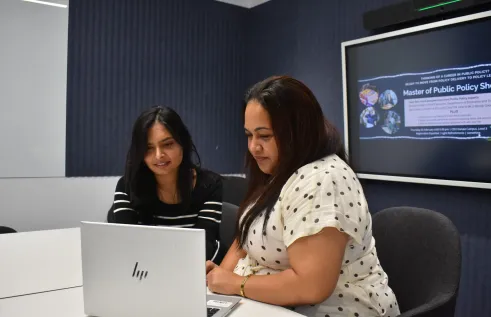
Master of Public Policy Showcase
Join Northern Institute for the MPP Showcase during O‑Week in late February to explore what the program offers and take the next step towards leading with purpose.
Read more about Master of Public Policy Showcase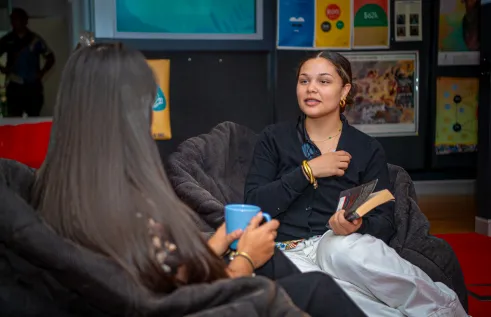
Why Cross‑Cultural Communication Matters in Indigenous-focused Research
A cross‑cultural research partnership grounded in respect, shared knowledge, and educational equity. Discover how collaboration shaped a transformative PhD journey.
Read more about Why Cross‑Cultural Communication Matters in Indigenous-focused Research
Thesis Talk
Thesis Talk is a facilitated academic discussion for HDR candidates to connect to and through ideas with research peers. Join the monthly online session to explore different topics, theories and practicalities. Talk through the nitty-gritty of research practices and reflect on your work.
Read more about Thesis Talk
